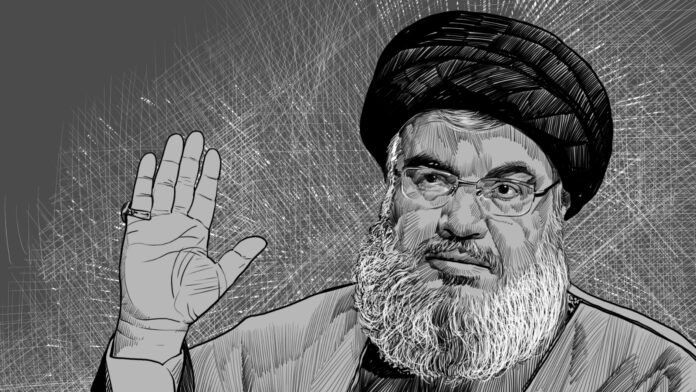Israel’s airstrike on September 27, 2024, targeting Hezbollah’s headquarters in the southern suburbs of Beirut and the assassination of Hassan Nasrallah, the party’s most pivotal leader for over three decades, following the assassination of the party’s second secretary-general, Abbas al-Musawi, in 1992, raises important questions about Nasrallah’s successor. Hezbollah now faces a significant challenge in selecting a new secretary-general, likely one of the party’s top priorities.
According to Hezbollah’s internal regulations, the secretary-general is selected by the “Shura Council,” a body of seven members managing different portfolios. The secretary-general is usually elected during a central conference. Still, this conference has not been held for years due to the wars in Syria and Lebanon, allowing Nasrallah to retain his position without new elections.
The current Shura Council comprises the heads of Hezbollah’s leading councils, alongside the late secretary-general Hassan Nasrallah and the Shura Council’s chairman. The members include: Naim Qassem, deputy secretary-general; Mohammad Yazbek, head of the Judicial Council; Ibrahim Amin Sayyed, head of the Political Council; Hashem Safieddine, head of the Executive Council and the leading candidate to succeed Nasrallah; Hussein Khalil, political advisor to the secretary-general; and Mohammad Raad, head of the Parliamentary Council and head of the Loyalty to the Resistance Bloc, Hezbollah’s political wing in the Lebanese parliament.
Hezbollah’s five leading councils—the Executive Council, Judicial Council, Parliamentary Council, Political Council, and Jihad Council—work under the supervision of the Shura Council. The Jihad Council oversees the party’s military activities.
Given the current circumstances, the leadership duties are expected to temporarily be handed to the deputy secretary-general, Naim Qassem, until the security and political situation stabilizes. This may delay the decision to select Nasrallah’s successor.
One key requirement for the new secretary-general is that he be a cleric, in line with the party’s doctrine based on the concept of Wilayat al-Faqih (Guardianship of the Islamic Jurist), a theory established by Iran’s Supreme Leader Ayatollah Ruhollah Khomeini in 1979.
The top candidate for the position is Hashem Safieddine, head of Hezbollah’s Executive Council. However, it is not ruled out that another figure could be chosen if circumstances demand it.
Iran’s role will be decisive in selecting the party’s new leader. Although the decision is considered internal, Tehran’s support and guidance play a significant role in the outcome, as Hezbollah’s leadership relies on indirect approval from Iran.
Observers note that any decision regarding the new leadership must have Iranian backing due to the close relationship between the two parties.
In the complex environment Hezbollah currently finds itself in, deciding on appointing a new secretary-general may be shrouded in secrecy to avoid him being targeted by Israel, as was the case with Nasrallah. However, the leadership will soon need to make this decision to ensure the party’s continuity in facing regional and international challenges. The same mechanism used after the assassination of Abbas al-Musawi, when Nasrallah was chosen to lead under similar circumstances, may be followed.




